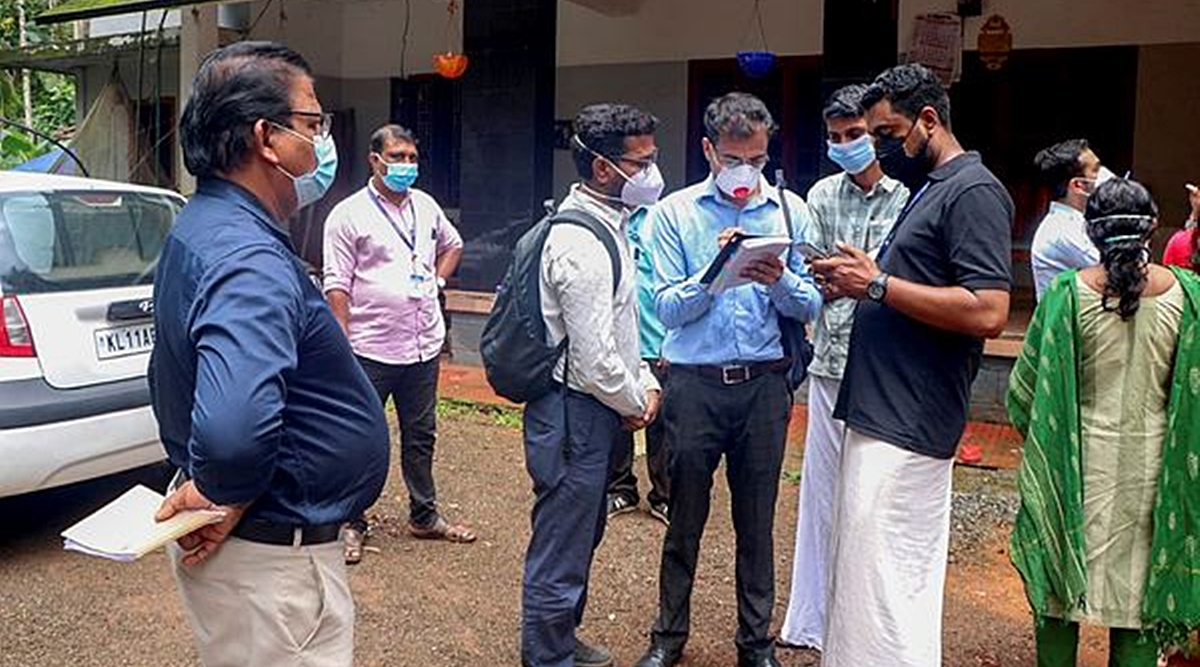With five infections and two deaths reported due to a Nipah virus outbreak in Kerala’s Kozhikode district, the government has allowed the compassionate use of a monoclonal antibody imported from Australia. Although the antibody has been proven to be safe in a small phase I trial, it has not been proven to be efficacious against Nipah virus in a large human trial.
Why is the government still allowing the use of the monoclonal antibody?
First, there is no effective treatment for the infection other than relieving the symptoms. Once infected, the mortality can be a very high 40 to 75 per cent. To compare, even at the peak of the Covid-19 pandemic, the case fatality ratio (CFR) – proportion of people who die among those who test positive – remained at around three per cent.

Second, the monoclonal antibody has so far been used in 14 individuals globally and none of them died. “The monoclonal antibody has never been used in India. There have been no trials because you need several cases of the infection to do so. And, fortunately that hasn’t happened. What we know, what anyone in the world knows, is that the antibody has so far been administered to 14 persons and none of them died. Nipah has a mortality rate of 40 per cent to 75 per cent, ” said Dr Rajiv Bahl, director general of the Indian Council of Medical Research.
What does the monoclonal antibody do?
The monoclonal antibody can effectively bind with a part of the viral envelope that attaches to the human cells to gain entry into the body. This effectively neutralises the virus.
Who can get the monoclonal antibodies?
Any contact of the primary cases, who is strongly suspected to have the infection, may use the monoclonal antibody. While the compassionate use has been approved by the government, since it hasn’t gone through all the stages of human trial, it will be the choice of the patient and their family whether they take it.
Most Read 1Chandrayaan-3 mission: Dawn breaks on Moon, all eyes on lander, rover to wake up 2As Indo-Canadian relations sour, anxiety grips Indian students, residents who wish to settle in Canada 3Karan Johar says Sanjay Leela Bhansali did not call him after Rocky Aur Rani: ‘He’s never called me but…’ 4Gadar 2 box office collection day 40: Hit by Shah Rukh Khan’s Jawan onslaught, Sunny Deol movie ends BO run with Rs 45 lakh earning 5Shubh’s tour in India cancelled: Why is the Canada-based singer facing the music?
The monoclonal antibody has to be used in the early stages of the disease, because it does not work once a person already has brain swelling or encephalitis.
Each person needs two doses of the monoclonal antibodies.
How many doses does India have?
India already has 20 doses of the monoclonal antibodies imported during the previous outbreak in Kerala in 2018. “It wasn’t used in 2018 because the outbreak was over by the time the antibodies reached India. For the current outbreak, we did not know whether we could use the five year old antibodies. However, the lab at University of Queensland in Australia that manufactures it has informed us that the sample maintained by them continues to be stable. The structures remaining stable means that we can use these doses,” said Dr Bahl. The monoclonal antibodies have remained stored at -80 degree celsius by the ICMR.
Also ReadWeight loss is not just about cardio: Why you need strength training and …Why having leafy vegetables at the beginning of a meal can control your b…Is your bad cholesterol or LDL level not going down despite diet and exer…WHO hypertension report reveals 4.6 million lives in India can be saved b…
India has requested another 20 doses of the monoclonal antibodies – which has also been used against Hendra virus from the same family.While its production remains limited – only three batches have been produced so far – the University has promised to deliver the additional doses.


